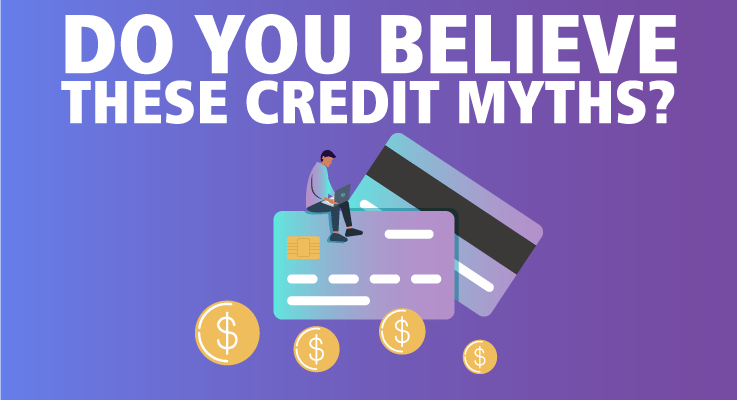
How you invest your money is a highly personal decision based on various factors, such as your financial situation and your appetite for risk. Therefore, it’s important to understand your options before you invest in the stock market.
Index fund investing is a common passive portfolio management strategy that many investors are curious about. In this article, we’ll cover the pros and cons of index funds so you can decide if they’re a good fit for your portfolio.
Are you looking for guidance on your investment strategy? Schedule a call with Bay Point Wealth today to speak with an expert.
Index Funds, Explained
Index funds are pooled investments, which are invested in a way that attempts to replicate the performance of a broad market index. Indexes themselves can be made up of different types of stocks and bonds, real estate, currencies, and commodities. Some of the most well known indexes include the Dow Jones (the “Dow”), the S&P 500, and the Barclays U.S. Aggregate Bond Index.
Indexes have been around for a long time and although they have since provided information to investors and other market participants, their primary purpose was to monitor and evaluate the performance of professional portfolio managers. It wasn’t until the 1970s when investors looked into investing in the index itself instead of hiring traditional active portfolio managers.
Over the past several decades, index funds have grown in popularity as a result of academic research that suggests traditional active portfolio management (researching, buying, and selling investments on a regular basis) tends to lead to under-performance in the market.
Index fund investing, also referred to as passive investing, has become attractive to many investors because it enables them to avoid the higher costs associated with active portfolio management.
The Role Of Index Funds In Investment Plans
One of the major factors that determines the role of index funds in various investment plans is the investment philosophy of your wealth manager because they invest based on what they believe is in your best financial interest. For example, if an investment advisor believes the cost associated with active investment management isn’t worth the returns, they may instead lean toward index fund investing.
Of course, your own investment philosophy can also determine whether you include index funds in your portfolio. Especially if you’re an investor with knowledge of the markets, you’ll likely bring your own philosophy to the table when you work with a portfolio manager. For example, if you prefer to keep costs and taxes low, you may opt to invest in index funds.
In addition, a technique known as ongoing portfolio management can also influence how index funds are used in investment plans. Generally speaking, the Internal Revenue Service (IRS) allows investors to offset capital gains (increases in asset value) with capital losses. When wealth managers want to rebalance your portfolio, they’ll take advantage of this opportunity. Here’s a typical example of this process:
- During market downturns, the value of securities drops, which means that, as an investor, you’ll have the opportunity to intentionally sell your investments at a loss, capture that loss, and use the loss to offset taxes on a future gain.
- IRS rules dictate that you can’t sell an investment, capture the loss, and then buy the same or a similar security within 30 days. This is simply to prevent any improper activity, like short-term trading.
- In this case, your wealth manager may decide to sell a particular fund—such as a large cap stock (shares in a company worth $10 billion or more) or a large cap mutual fund—at a loss, capture the loss, and then buy an index fund, which will likely have similar qualities as the stock or fund sold, but not enough to violate IRS rules.
- After the 30-day timeframe, you can reevaluate if you want to invest in the large cap stock or fund again. This process helps to keep your risk exposure in line and also ensures you don’t violate IRS regulations.
The Pros And Cons Of Index Funds
Both positive and negative aspects are associated with every type of investment strategy. If you’ve ever wondered, “What are the advantages of investing in an index fund? What are the disadvantages?,” we’re about to dive into both the pros and the cons.
Advantages Of Investing In Index Funds
1. You know which stocks you own and why you own them.
A desire for greater transparency was one of the driving factors that led to the creation of index funds in the 1970s, when many investors felt they didn’t have enough visibility into why their portfolio managers were making certain investment decisions on their behalf.
Enter the index fund. Index funds provide a benchmark for investors to assess potential risk and return. Index providers such as Standard & Poor are highly transparent about which stocks they include in their index—the S&P 500—as well as how each stock is weighted (the percentage of the index represented by each stock).
2. You’ll never be held to the whims of an active investment manager.
Another advantage of index funds is that the emotion and personal bias of your investment manager won’t affect their oversight of your portfolio since the portfolio is simply tracking the performance of the market index.
If you have an active investment manager making decisions on your behalf, your portfolio is bound by their whims to an extent. With an index fund, you won’t have to worry if a poor decision on their part could negatively impact your investments.
3. Index fund investing requires less resources, which translates to lower costs for you.
Index fund investing requires fewer people and hours to oversee, so it’s a more affordable way to participate in the stock market. Some index funds have no trading or management fees, which means they cost literally nothing to buy into, while still enabling you to build a portfolio with global market diversification.
4. Index funds can minimize your tax bill.
One final advantage of index funds is that they tend to have less turnover. Turnover in the investment world simply refers to the buying and selling of securities within your portfolio, which triggers tax consequences. For this reason, index funds are typically more tax efficient.
Disadvantages Of Investing In Index Funds
1. It’s unlikely that your portfolio will outperform the index.
Index funds intend to replicate the performance of market indexes, which means there isn’t much of a chance that your portfolio will outperform the index in which you’ve invested. This is a disadvantage for investors who want the opportunity to “beat the market.”
However, due to the low cost of investing in index funds and the fact that some funds have actually slightly outperformed the index in recent years thanks to certain management techniques, many investors do not see this point as a disadvantage.
2. You won’t be as actively involved in your investment strategy.
Some investors criticize index funds for being a “set and forget” type of investment because they don’t require active investment management. However, managing an index fund portfolio isn’t as simple as some investors may think.
3. Index funds don’t take the valuations of your investments into consideration.
If you were comparing two stocks with similar risk profiles and one was less expensive than the other, you’d probably choose to buy that less expensive stock. However, index funds don’t take this process of valuation into consideration because index providers tend to own stocks based on their market cap size.
Some investors see this lack of attention to valuations as a disadvantage because they believe it ignores an opportunity to rebalance their portfolio by selling stocks that are performing well at a higher price and buying other stocks at a lower price.
4. The decisions of index providers affect your portfolio.
Index providers determine which stocks are included in their indexes. As a result, your indexed portfolio is affected by their decisions. For example, Tesla was recently included in the S&P 500, which means if you own a S&P 500 index fund, you’ll be a Tesla shareholder. You may see this result as a negative if you believe the stock is too expensive or even if you simply aren’t a fan of Elon Musk.
Invest Wisely With The Help Of Bay Point Wealth
At Bay Point Wealth, we believe that every investment strategy should be unique to the client, so our first step in the process is to have a conversation with you. We’ll ask about your financial situation and your risk tolerance level so we can create a portfolio suited to your needs and goals. If you’re concerned about investment costs and taxes, we’d be happy to discuss index funds with you. We’ll always be transparent about the pros and cons associated with every investment approach.
As an investor, the most important rule to follow is to stick to your investment strategy once it’s been established. A carefully crafted investment strategy will almost always lead to positive outcomes if you put in the work upfront to get it right, and then give it time to generate returns.
Schedule a call with us today to create a plan for your investments.














